‘Smiling coffee killer’ Jessica Wongso appears in eerie new interview
An Aussie known as the “iced coffee killer” has appeared in a brand new interview that will send shivers down your spine.
Lifestyle
Don't miss out on the headlines from Lifestyle. Followed categories will be added to My News.
Indonesian convicted murderer and Australian permanent resident Jessica Kumala Wongso has appeared in a shocking new documentary.
In it, she was dubbed the “smiling iced coffee killer” and accused of “brazenly” murdering her friend and fellow Indonesian Wayan Mirna Salihin in a glitzy cafe in Jakarta in 2016.
The new documentary entitled Chilling interview: Why Jessica Wongso murdered her best friend with poisoned coffee, aired on 7News Spotlight and has already racked up over two million views.

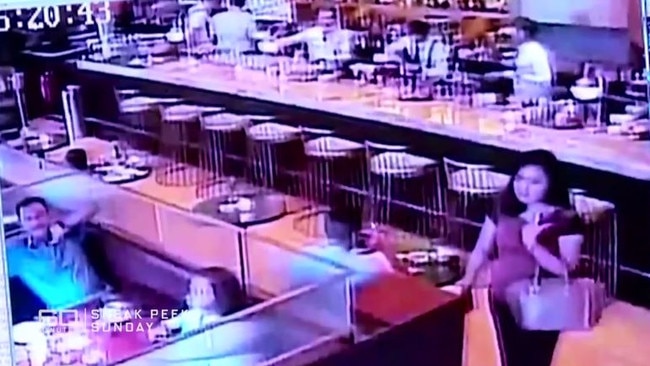
According to the documentary, Wongso, who is currently on parole, “still hasn’t got her story straight” – despite having spent eight years in an Indonesian prison for the murder.
Wongso was found guilty in 2016 by a Jakarta court of adding cyanide to an iced Vietnamese coffee that she bought for her friend Salihin, causing her to collapse and convulse in front of horrified patrons at the cafe.
Salihin, who was just 27-years-old, was rushed to a nearby hospital where she was pronounced dead, and the Indonesian prosecution alleged that Wongso, who had previously studied at the Billy Blue College of Design in Sydney with Salihin, had been jealous of her friend who had just got married.

Wongso has always denied the charges against her, and pleaded innocent at her trial, before she was convicted and sentenced to 20 years in prison.
She was released on parole last year having served just eight years of her sentence – and is currently filing a final appeal in a last-ditch bid to clear her name.
During the 44 minute sit-down, Spotlight journalist Liam Bartlett asked Wongso a series of tough questions about the murder, appearing both disappointed and shocked by some of her answers, including that Wongso and Salihin “were not close at all” and were only acquaintances because they “came from the same country.”
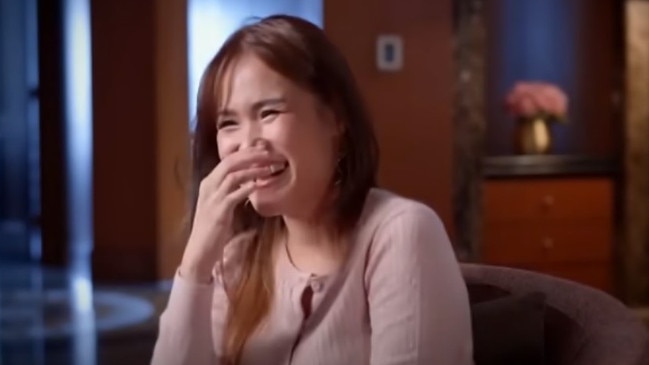
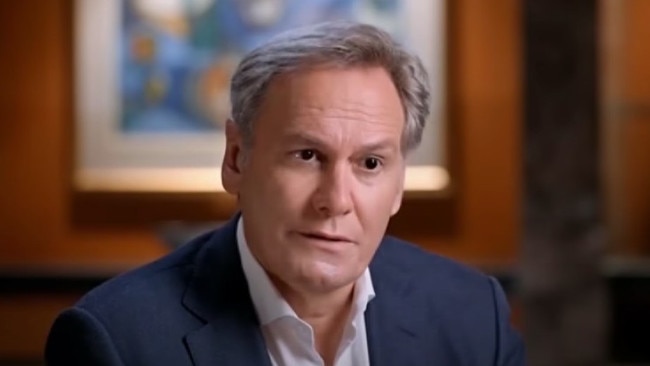
Simon Butt, a professor of Indonesian law at the University of Sydney, told news.com.au that the language used in the interview and its largely unsympathetic portrayal of Wongso was likely due to her ongoing legal status as a convicted murderer.
“Of course, legally, a programme like this can proceed on the assumption that she was guilty of the murder. She was found to be so by successive Indonesian courts,” he said.
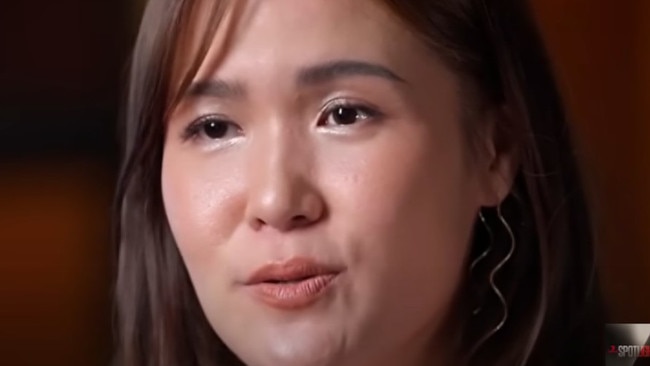
Yet he added that the documentary had a missed opportunity to shed greater light on her case, which gripped Indonesia back in 2016 and prompted widespread speculation by the public about Wongso’s possible guilt or innocence.
“The intriguing part of her story is that, despite her conviction, there remains very strong doubts about whether she did in fact kill her friend,” Butt said.
Butt argued that the Spotlight interview did not fully explain some of the nuances of Wongso’s case.

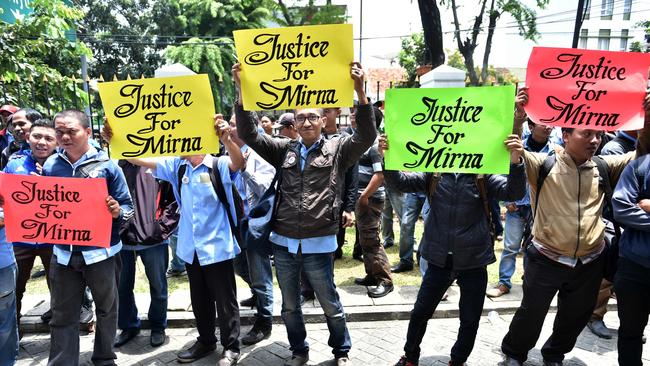
“The programme was one-sided, swallowing the very problematic decision, and appeals, whole.
“The programme did not mention very problematic aspects of her conviction, including that no autopsy was conducted and there were serious problems with the handling of the coffee sample from the cafe.
“There was no cyanide found at the scene. Whether Salihin died of cyanide poisoning, and even whether the coffee itself had cyanide in it was, in my view, never established beyond reasonable doubt.”
Butt added that, as Wongso’s defence lawyers continually stated, Sahilin could have died of natural causes, but the lack of a full and comprehensive autopsy means that this has never been fully established.
“These issues were not pursued in the programme,” he added.
“That said, Wongso didn’t help herself by agreeing to the interview before her final appeal has been concluded.”
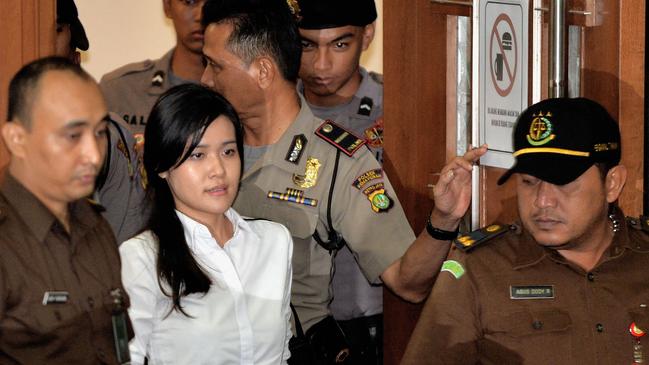
Under Indonesian law, a judicial review is usually only successful if there is compelling new evidence presented in a case that was not previously heard at the original trial.
Another one of the main issues with the Spotlight interview was the fact that Wongso repeatedly refused to answer or elaborate on questions put to her by Bartlett – and did not appear to emphatically deny guilt.
Butt said however that Wongso told Bartlett that she could not protest her innocence as she remains on parole until 2032.
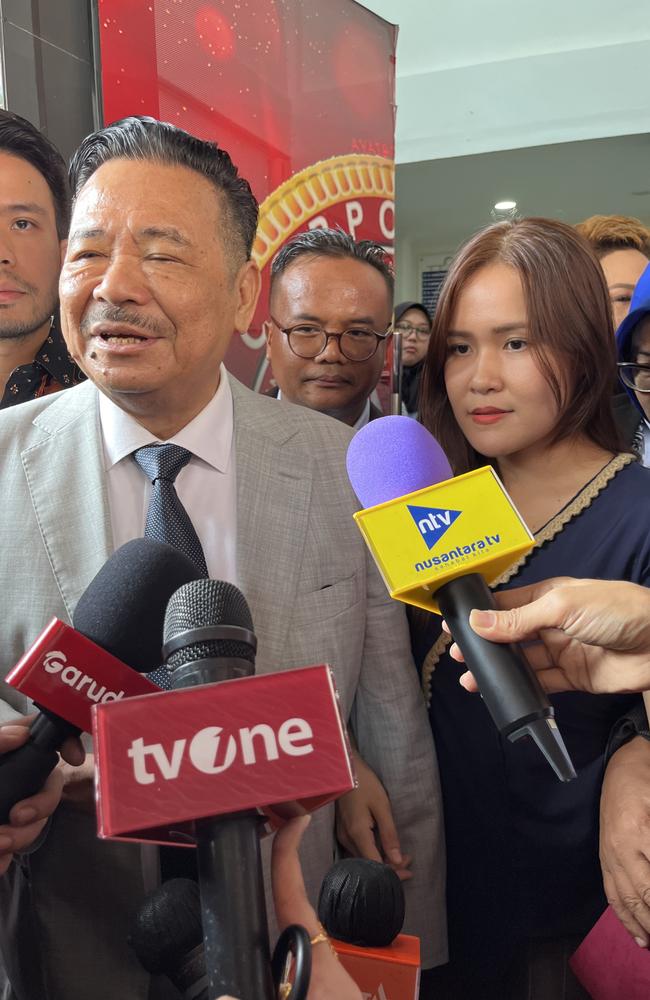
“If she did that, her parole might be revoked. Yet the journalist continually asked her to explain the way she acted and reacted at various times, including during her trial, and obviously drew implications from her failure to defend herself in her answers,” Butt said.
“He put her in an impossible situation, over and over, asking her questions that an innocent person would be able to answer, and then appearing suspicious that her responses were strange or evasive.”

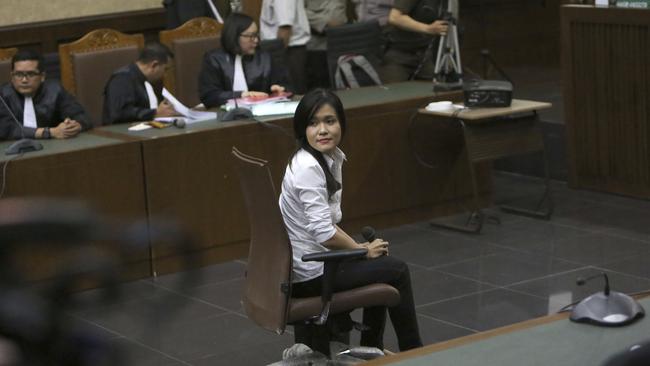
One example was when Wongso was asked why she contacted Salihn’s sister with a press story about the coffee poisoning and asked about the results of toxicology tests.
“He obviously thought this was somehow suspicious,” Butt said.
“But if she did kill Salihin, one would not expect her to reveal the way she did it, especially considering police did not initially treat it as a murder. She could not make these points in the interview because she could not claim innocence.”

A spokesperson for Spotlight told news.com.au that they refute Butt’s claims and added their interview was fair and balanced.
“While we respect Professor Butt’s right to an opinion, he appears to have confused our program with the Netflix documentary,” a spokesperon said.
“Our interview with convicted killer Jessica Wongso was thorough, comprehensive, and entirely balanced – covering all key aspects of the case.
“Jessica agreed to the interview on the advice of her own legal team, and we offered her lawyer to remain in the room for the duration of questioning.
“On no occasion did Jessica complain or indicate in any way, either during or following the interview, that we had placed her, as the Professor puts it, in an ‘impossible situation’.”
Ranto Sibarani, a lawyer based in the city of Medan in Indonesia, said that people needed to look at the facts of the case rather than conjecture.
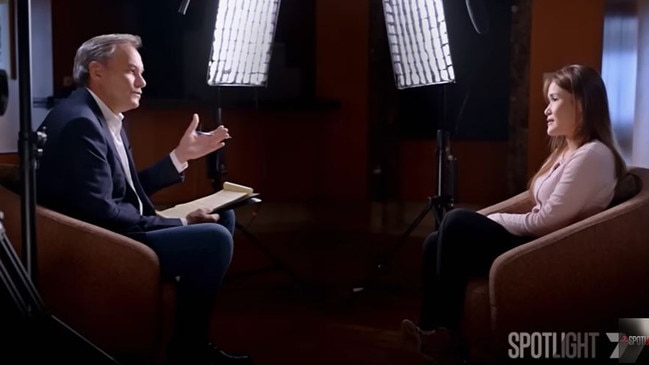
“It is quite clear based on the evidence and the verdict of the three judges that Jessica was found guilty of murdering Mirna using cyanide,” Mr Sibarani said.
“She has also shown herself to be extremely clever, as no one has been able to find the cyanide that she used, or the trousers that she was wearing at the time, which she admitted she threw away.
“Many people were suspicious of Wongso rubbing her hands on her trousers after Salihin collapsed in the coffee shop, all of which was caught on CCTV.
“Some suspected that cyanide residue on her hands was causing them to itch although, in the new documentary, Wongso denied this.
“She said instead that she had asked her helper to throw the trousers away as they had a rip in them which could not be repaired.”
Talking of the new documentary, Sibarani said that he would never advise a client to speak to the media before all their legal appeals were exhausted.
“Particularly not one where they criticised the sentence or the legal proceedings,” he said.
Aisyah Llewellyn is a freelance journalist based in Indonesia
Originally published as ‘Smiling coffee killer’ Jessica Wongso appears in eerie new interview




